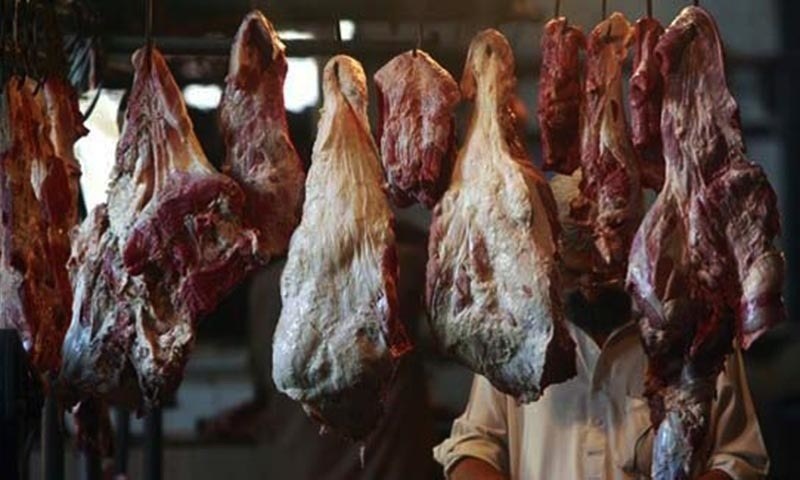PAKISTAN’S exports of meat and meat products that declined in 2017-18 owing to the delays in payment by foreign buyers bounced back in the next two years and crossed the $300 million mark for the first time in 2019-20. In another first, export volumes surpassed 80,000 tonnes.
In the post–Covid-19 world, Pakistan has the potential to increase its food exports. Their demand remains strong unlike the demand for non-essential items. In this context, the rise of meat exports to $300m is a healthy development. Since the increase has come owing to larger shipments instead of the increase in the per-unit price, the government and exporters must find ways to boost the export price.
Earning higher export earnings on the back of larger volumes of a particular food item is unwise because it creates a shortage of that item in domestic markets and escalates its local prices. The increase in the local prices of beef and mutton in the past two years is as much attributable to expanded export volumes as to the other factors like higher inflation and rising cost of production.
According to the Pakistan Bureau of Statistics (PBS), the national average price of beef with bones rose from Rs367 per kilogram in June 2018 to Rs412 in June 2019 and Rs451 in June 2020. The per-kg price of mutton also went up from Rs773 in June 2018 to Rs860 in June 2019 and then Rs945 in June 2020.
Beef and mutton prices have gone up sharply in the last two years while their exports rose substantially
The PBS makes it clear that these national average prices apply to the “average quality” of beef with bones and mutton. It does not collect the prices of higher quality meat and also remains silent on the prices of veal or calf meat. It also does not collect or report the prices of beef (meat of old cows and bulls) without bones. In most retail markets of Karachi, beef without bones is currently selling at Rs550-600 per kg and calf meat at Rs650-Rs700 per kg. Mutton is selling at Rs1,100-Rs1,200 per kg.
Regardless of the vast difference in the national average prices reported by the PBS and the prevailing prices in Karachi markets, the fact remains that beef and mutton prices have risen sharply in the past two years. Since meat exports have risen substantially during these two years, it seems advisable for policymakers to examine how higher export volumes of meat — or any other food item for that matter — affect local prices.
But any study launched for this purpose must not rely on the so-called lists that are issued from the commissioners’ offices. Those price lists now serve to entertain only netizens. For a study aimed at finding a link between export volumes and domestic prices of meat — or any other food item for that matter— it must be carried out by honest and capable professionals. Survey groups of reputable universities like LUMS or IBA can be used for this purpose. And, to ascertain the extent to which larger export volumes actually tend to push up local prices of food items like beef and mutton, help can be sought from reputable economic think tanks and the State Bank of Pakistan (SBP).
Undertaking such an exercise has become all the more necessary for lots of reasons, but some of them are very conspicuous. First, Pakistan is facing serious issues in its food security regime and food security is not just about the availability of food items — it is equally about availability at affordable prices.
Second, in the post-pandemic world, countries are trying to trim non-essential imports but demand for food imports remains intact. This means our food exporters will be tempted to tap this demand.
If they try to take advantage of this strong demand only through larger export volumes without switching over to more value-added food products to fetch a higher per-unit export price, it will be devastating from our own food security point of view.
Third, Pakistan is in need of boosting its overall export earnings and, as such, unscrupulous elements in the government of the day will likely be tempted to let food exports grow even at the cost of complicating food security issues and letting food inflation rise further.
Severe wheat and sugar crises in the past two years are examples of how difficult it is to ensure the availability of even the most essential food items at affordable prices. It becomes all the more difficult due to the politicised handling of such crises. The politicised handling of complex crises does several serious damages, but the most obvious of them is that less-than-professional media coverage fuels inflationary expectations — causing a steeper rise in the prices of the same commodities.
Keeping these things in view, it is important to approach the issue of the balancing of food exports and food security in a purely professional manner free from political point-scoring and focused on obtaining the findings that can help economic managers run the economy more effectively.
Published in Dawn, The Business and Finance Weekly, July 27th, 2020














































